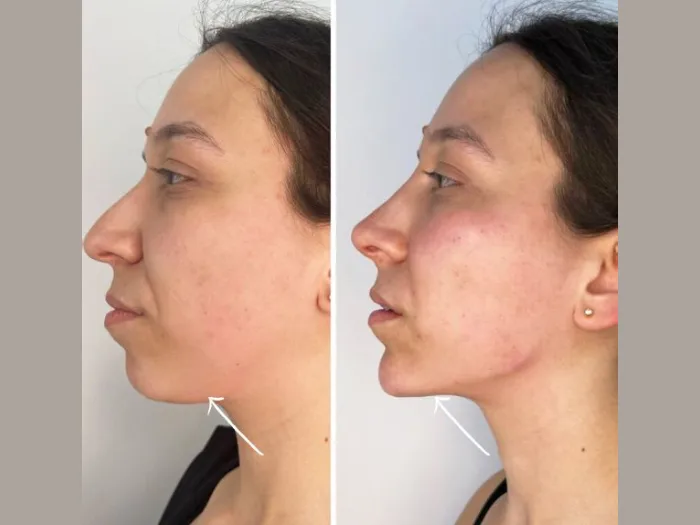Women today juggle countless roles — from managing careers and family to pursuing personal goals. But in the hustle, nutrition often takes a backseat, leading to fatigue, weakened immunity, and nutrient gaps. That’s where daily vitamins for women’s energy and immunity step in, offering targeted support to keep you active, focused, and resilient.
In this guide, we’ll explore why women need specific vitamins, the best nutrients for energy and immunity, tips for choosing the right supplement, and expert-backed lifestyle habits to maximize results.
1. Why Women Need Daily Vitamins for Energy and Immunity
Unlike men, women’s nutrient needs change more significantly due to hormonal fluctuations, menstruation, pregnancy, and menopause. Combined with busy schedules and dietary gaps, deficiencies are common — impacting stamina, focus, and immune defense.
Key reasons daily vitamins are essential for women:
-
Energy demands – multitasking and stress increase micronutrient needs.
-
Hormonal cycles – certain vitamins help regulate PMS symptoms and fatigue.
-
Immune resilience – essential in today’s environment to fight infections.
-
Bone and muscle strength – supports long-term health and active living.
2. Essential Vitamins and Nutrients for Women’s Energy
A. Vitamin B Complex (B1, B2, B3, B5, B6, B7, B9, B12)
-
Role: Converts food into energy, supports brain function, and regulates mood.
-
Best Sources: Eggs, whole grains, leafy greens, lean meats, fortified cereals.
-
Supplement Tip: Choose a balanced B-complex or a women’s multivitamin with all B vitamins.
B. Iron
-
Role: Carries oxygen in the blood; prevents fatigue and anemia.
-
Best Sources: Lean red meat, lentils, spinach, pumpkin seeds.
-
Women’s Note: Iron needs are higher during menstruation.
C. Magnesium
-
Role: Supports muscle function, reduces tiredness, aids in energy production.
-
Best Sources: Nuts, seeds, dark chocolate, leafy greens.
D. Coenzyme Q10 (CoQ10)
-
Role: A natural antioxidant that powers cellular energy production.
-
Best Sources: Organ meats, fatty fish, whole grains.
3. Best Vitamins for Women’s Immune Health
A. Vitamin C
-
Role: Strengthens immune cells, promotes wound healing, and fights oxidative stress.
-
Sources: Citrus fruits, bell peppers, kiwi, strawberries.
B. Vitamin D3
-
Role: Regulates immune response and supports bone health.
-
Sources: Sunlight, fatty fish, fortified dairy.
-
Note: Many women have low Vitamin D levels — supplementation is often necessary.
C. Zinc
-
Role: Speeds up recovery, fights infections, and supports wound healing.
-
Sources: Shellfish, pumpkin seeds, beans.
D. Omega-3 Fatty Acids
-
Role: Reduces inflammation, supports brain function, and helps immune modulation.
-
Sources: Salmon, chia seeds, walnuts.
Signs You Might Need a Daily Vitamin
-
Persistent fatigue
-
Frequent colds or infections
-
Brittle nails and hair loss
-
Poor concentration and mood swings
-
Muscle weakness or bone aches
If you notice two or more symptoms regularly, it’s worth speaking to your healthcare provider about adding a high-quality multivitamin.
Choosing the Right Daily Vitamin for Women
When buying a supplement, consider:
-
Age-specific formulas – needs differ for women in their 20s, 40s, or post-menopause.
-
Nutrient completeness – ensure it covers B vitamins, iron, Vitamin C, D3, and minerals.
-
Form – gummies, capsules, or powders based on your preference.
-
Add-ons – probiotics, Omega-3, or herbal blends for extra benefits.
-
Reputable brand – third-party tested and free from harmful additives.
Natural Food Sources vs. Supplements
While a balanced diet is the foundation of good health, supplements bridge the gap when food intake is insufficient due to:
-
Busy schedules
-
Restricted diets (vegan, gluten-free)
-
Limited sun exposure
-
Chronic health issues
Daily Routine to Boost Energy and Immunity
Pairing supplements with healthy habits will give you the best results:
-
Hydration: 2–3 liters of water daily
-
Balanced meals: Include protein, healthy fats, and fiber
-
Regular exercise: At least 30 minutes daily
-
Quality sleep: 7–9 hours per night
-
Stress management: Meditation, journaling, or nature walks
Common Myths About Women’s Vitamins
-
Myth: “If you eat well, you never need supplements.”
Reality: Modern diets often miss key nutrients due to soil depletion and processed foods. -
Myth: “Vitamins give instant energy like caffeine.”
Reality: They work over time to restore balance and prevent fatigue. -
Myth: “All multivitamins are the same.”
Reality: Quality, formulation, and nutrient levels vary widely.
Expert Recommendations
Nutritionists suggest:
-
Taking vitamins with food for better absorption.
-
Choosing a formula with methylated B vitamins for better bioavailability.
-
Combining with Omega-3 for overall well-being.
-
Getting blood tests annually to track nutrient levels.
Conclusion
Daily vitamins for women’s energy and immunity are more than just supplements — they’re a health investment. By ensuring your body gets the nutrients it needs, you boost your energy levels, strengthen your immune system, and support long-term wellness.
Whether through food, supplements, or both, make nutrition a non-negotiable part of your daily self-care.
FAQs
Q1. Can I take my daily vitamin at night?
Yes, but morning with breakfast is preferred for better absorption and energy support.
Q2. How long until I feel the effects of daily vitamins?
Most women notice improvements in 2–6 weeks, depending on their starting health.
Q3. Are gummy vitamins as effective as capsules?
If they contain the same nutrients and doses, yes — just watch the sugar content.
Q4. Do daily vitamins replace a healthy diet?
No. They fill gaps but can’t replace the benefits of whole foods.
Q5. Can pregnant women take regular multivitamins?
No — they should opt for prenatal vitamins with higher folate and iron.



